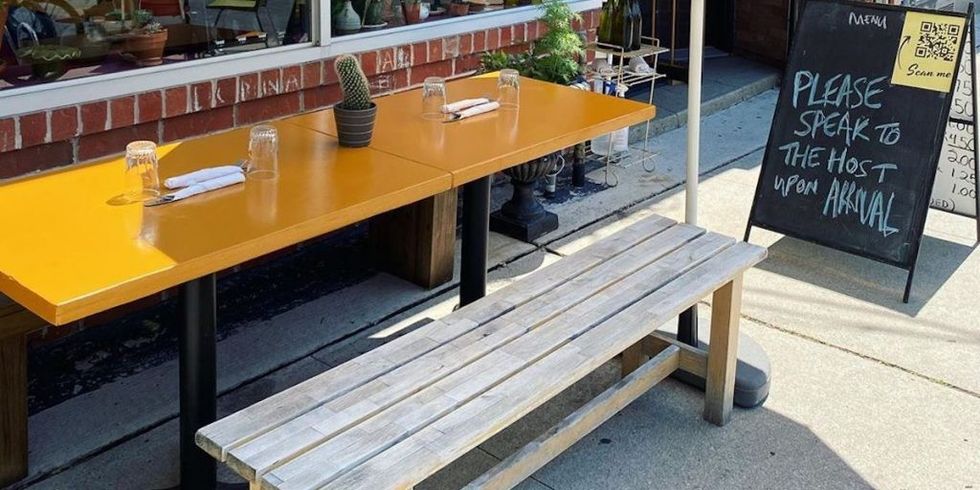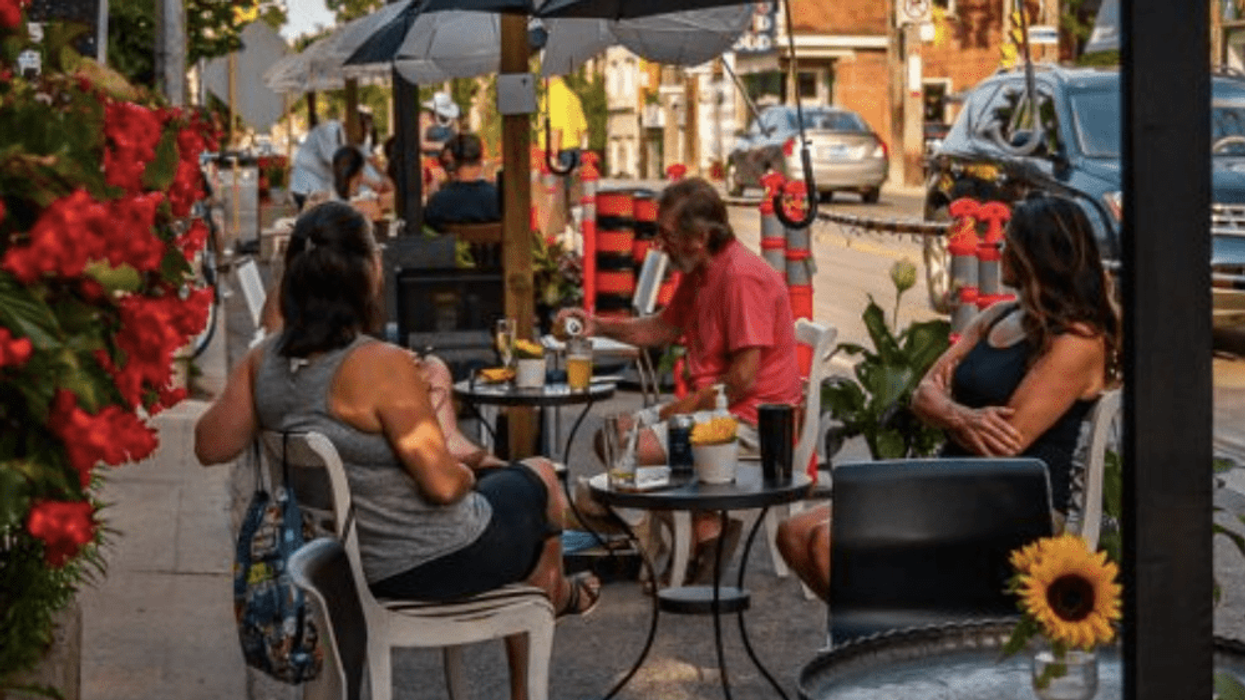To the collective joy of Toronto restaurant owners, it looks like CaféTO will likely live on.
Yesterday, the City of Toronto Executive Committee approved plan to make CaféTO permanent and waive permit fees in 2022. The report will now be considered by Toronto City Council on November 9 and 10.
Designed as a quick-start program in 2020 to help provide outdoor dining space to local bars and restaurants during the pandemic, the popular program was approved by City Council to return in 2021 and saw a 51% increase in participation when compared to 2020 registration.
The staff report, CaféTO 2022 and Beyond, recommends CaféTO be made a permanent program that can continue providing support to local restaurants while also making city streets more vibrant both now and when the pandemic finally becomes a thing of the past. As part of the report, City staff are proposing to once again waive all application, transfer and permit fees for curb lane, sidewalk, and parklet cafés in 2022.
The Executive Committee also asked City staff to report back on a plan to encourage additional outdoor dining opportunities and business supports like grants and promotional programs in suburban areas of Toronto, as well as a plan to manage under utilized café spaces. The Committee also approved a motion from Mayor Tory to look at more permanent structures, locations, and services in suitable CaféTO locations.

“The CaféTO program has been successful and popular and has helped hundreds of restaurants stay open, generate revenue, and protect jobs through the pandemic,” says Mayor John Tory. “I am encouraged that members of the Executive Committee recognized the value and support that has been provided to local businesses through CaféTO. This is a good program for restaurants and residents, and I am committed to making sure it continues."
This year, CaféTO is supporting more than 1,200 restaurants with expanded outdoor dining opportunities on streets and sidewalks, including 940 restaurants with curb lane closures, totalling more than 12 linear kilometres of public space allocated for outdoor dining opportunities. Approximately 500 restaurants city-wide already carry a permanent permit for a sidewalk patio, and in 2021, 429 restaurants opened a new, or expanded an existing, sidewalk café through CaféTO. Sixty-nine Business Improvement Areas (BIAs) have had at least one restaurant participating in CaféTO this year and 158 participating restaurants are located outside of BIAs.
Public parklets were also installed to provide an increased amount of public space in café-saturated streetscapes. In 2021, there were 39 BIAs that participated in the public parklet program, with a total of 65 public parklets city-wide.
This summer, the City launched a public survey for restaurant operators, customers, and the general public to gather feedback about CaféTO. The survey received more than 10,000 responses which showed that 91% of respondents believed that extended sidewalk and curb lane cafés should be allowed in Toronto in the future -- even when pre-pandemic level car traffic returns to city streets.
City staff are recommending a phased approach toward a permanent and streamlined CaféTO program. The report recommends a new registration process for future, permanent CaféTO sidewalk cafés starting in 2022. The new, permanent process would be fast and streamlined and, if approved, restaurant operators will only need to apply once for year-round expanded sidewalk cafés. Currently, existing temporary CaféTO sidewalk cafés can remain in place and available through the winter until April 14, 2022.
While the report recommends the return of temporary curb lane cafés next year, with installation starting as early as May 2022 and under similar guidelines and requirements from 2021, it also includes a recommendation to develop criteria for the permanent, seasonal use of curb lane cafés by 2023. This approach will help keep the program as flexible as possible in order to allow for adjustments related to potential changes to the food service industry, as well as changes to traffic patterns and street uses as a result of pandemic recovery over the coming year, says the City.





















